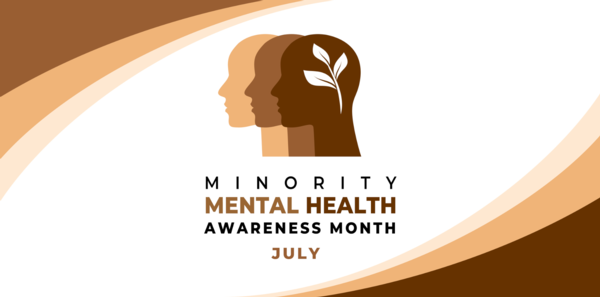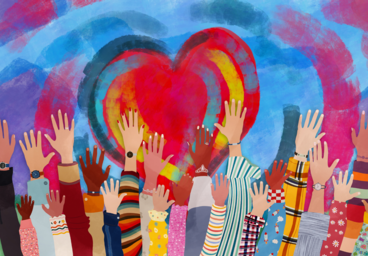July Is National Minority Mental Health Awareness Month

July is National Minority Mental Health Awareness Month, which is important for a few reasons: first, minorities are statistically less likely to inquire about or receive mental health assistance; bringing awareness puts a spotlight on mental health disparities such as access to services and the quality of care received. It serves as an opportunity to initiate discussions with experts, organizations, state government representative, and other entities in the private and public sector, to come up with ways to increase availability, accessibility, and quality.
According to the Substance Abuse and Mental Health Services Administration (SAMHSA), mental illness affects one in five adults and one in ten children, but a majority (two-thirds) of those with a diagnosable mental illness won’t seek treatment – ethnic groups are even less likely to do so, according to the National Alliance on Mental Illness (NAMI).
The U.S. Department of Health and Human Services Office of Minority Health has reported the Centers for Disease Control and Prevention's (CDC's) findings on mental health disparities for African Americans, American Indians/Alaska Natives, Asian Americans, and Hispanics/Latinos. Poverty greatly affects African Americans’ and Hispanics’ mental health. Suicide is the second leading cause of death for American Indians/Alaska Natives between ages ten and 34. Up to 70% of Southeast Asian refugees that immigrate to the U.S. experience post-traumatic stress disorder (PTSD). You can read reports on health care quality and disparities over the last decade from the Agency for Healthcare Research and Quality (AHRQ)?here.
HHSA’s Mental Health help individuals with mental illness manage their symptoms and avoid crises. Mental Health applies a “whatever it takes” approach to support the wellness and recovery process. Mental Health maintains mobile clinics to help rural populations get access to quality care with access to therapy, education, peer support, medication guidance, and health screenings. Our One-Stop Centers, of which there is one each for the northern, central, and southern parts of Tulare County, provide youth ages 12–24 with not only mental health services but also employment opportunities, life skills training (e.g., budgeting, cooking, and self-care) and referrals to a wide array of other services.
HHSA seeks to serve its residents by protecting and strengthening the well-being of the community through development of effective policies, practices, and services delivered in a culturally and linguistically competent manner.



